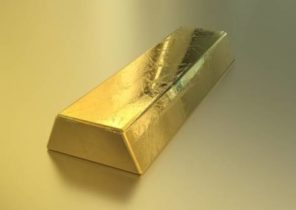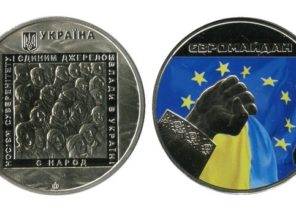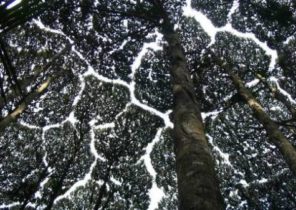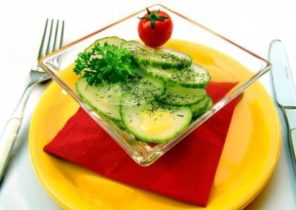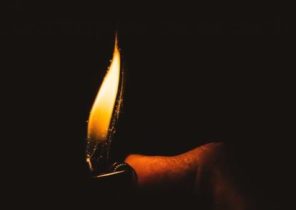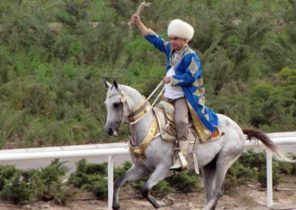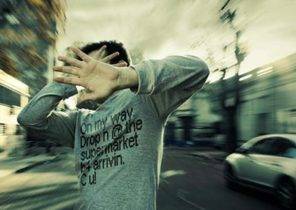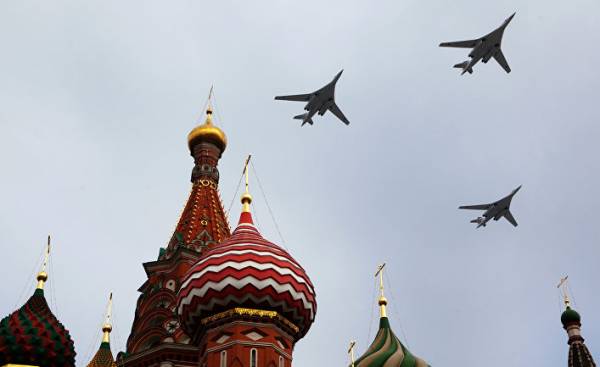
This month in the pages of the New Yorker published an article “trump, Putin and the new cold war”, which talks about what was behind the Russian intervention in elections in 2016, and what awaits us ahead. Through Facebook and Twitter, we asked readers to ask questions that they have after reading this article. Here are some answers (questions are shortened for clarity).
GRIA Andolina (Gria Andolina): Why are all associated with trump?
David Remnick: a Problem for trump are questions about alleged collusion with Russia (Involved whether trump or his allies in the Russian hacker attacks during the elections, whether he knew about them helping is it?). The second is financial complications, namely, whether there was and whether the President has any business relationship that could raise questions for the law enforcement? And finally, whether Russian special services have information about the President that may affect his work? Clear and definite answers to these questions is no, and therefore, law enforcement authorities and congressional committees should conduct fair, impartial and thorough investigation. From our side it would be unwise, unfair, and harmful to go beyond the evidence. The only way to get away from speculation and partial evidence is to conduct a real investigation (including journalistic).
Neil Gasman (Neil Gussman): a Member of the house of representatives Darrell Issa (Darrell Issa) said that we need a special Prosecutor to investigate the Russian intervention in elections. Is it possible?
Evan Osnos: Yeah, maybe, although Issa is hardly an influential leader who can insist on. Speaking on February 24 at the program “now with bill Mayer”, Issa, representing the 49th district of California and initially supported trump, said, “We need to use the powers of the special Prosecutor and the regulation on it.” Thus, he became the first Republican in Congress, said that the election trump needs to investigate the special Prosecutor. From Issa this is a very remarkable statement. During his tenure as Chairman of the house Committee on oversight he famously insisted on the investigation about the shortcomings of Democrats, including failures in the work site health insurance Healthcare.gov the flaws in the work of the IRS and the events in Benghazi. But lately, Issa faces challenges. Having worked in Congress for 16 years, he won the November elections with a very small margin of 1 608 votes. Advocating for the appointment of a special Prosecutor, Issa then refused from this point of view, and is now pursuing a less specific goal, in calling for “an independent review in Russia.”
With Issa or not, but it appeals to appoint a special Prosecutor becomes more and more. Attorney General Jeff sessions (Jeff Sessions) recused himself and refused to participate in investigations related to the elections. So the Democrats want the acting Deputy General Prosecutor Dana Boente (Dana Boente) has appointed a special Prosecutor to oversee the investigation. The regulations of the Ministry of justice, such a step is provided in the case, if the case “of a conflict of interest of the Ministry or some other extraordinary circumstance.” If Boente believes that a given case these criteria are not consistent, Democrats have another option: to restore the lost power, the law gives the Commission consisting of three judges the authority to appoint an independent Prosecutor. There’s another way: Bente has the right to take the Prosecutor’s side, that he exercised control over the course of a criminal investigation. This was the case in 2003, when the Ministry of justice has appointed Patrick Fitzgerald (Patrick Fitzgerald) as special Prosecutor to investigate who told the media the name of CIA employee Valerie Plame-Wilson (Valerie Plame Wilson). (The investigation led to the fact that there appeared before the court, the chief of staff to Vice President dick Cheney, Lewis Libby (Lewis Libby) that he lied to the Grand jury and interfered with the administration of justice.)
Cade kat Martin (Kayde Kat Martin): do you think democracy will survive this? I think we have very little that keeps you from turning into Putin’s Russia. Where we should strive for maximum efficiency? How can we eliminate indifference and to force those in power to give preference to democracy and not personal interests? How can I personally help?
Evan Osnos: As I recall, when everyday discussion for the first time filled with questions about the fundamental dignity and strength of our democracy, there was deep concern about whether or not strong political and digital technology of our time, to withstand the moment load. From a dismissive shrug, calling the hysterical Democrats and liberal torrent about the election results and attempt to challenge their legitimacy. But here the case is different. In my opinion, there is nothing excessive and unnecessary in questions about whether or not we are making efforts to strengthen and revitalize democracy. For ten years I have lived in countries where much autocracy (Egypt, Iraq, China). And for a minute I didn’t stop to appreciate the work of defending democracy from the temptations of autocracy. The article about China last fall, I wrote: “At what point in the history of the country secured in their positions of tyranny? This rarely happens instantly. It comes as a sunset comes gradually, and the eyes get used to it”. Such a natural force of habit which strongly explains and justifies changes in rules and regulations, weakening of public trust and tradition, is the need to speak loudly and actively, when institutions are under threat. When the White house in any part fails one or another of the media to participate in the briefings, this is not a partisan issue and not vnutripsihicheskoy storm. This is the case when it is necessary to appeal to principles of constitutional democracy, demanding that members of Congress specific actions and supporting the journalism that we believe is vital. As posted last week, my colleague Katrin Schulz (Kathryn Schulz), “to act, none of us needs a guaranteed result.”
David Remnick: Humor is also important. In the Brezhnev era in the Soviet Union, people in some sense helped jokes and anecdotes. But I don’t think presidential power trump will collapse under the fire of the best jokes satirist John Oliver (John Oliver). I can only speak about my field, about journalism. I repeat, that sunlight is the best disinfectant, and that the truth (facts, mental toughness, clarity of thought) is what should require citizens.
Farin Ansari (Fareen Ansari): will we See a full-scale boycott from the press, actions in support and solidarity with those representatives of the media and leading publications who take up rights granted them by the First amendment?
David Remnick: I Can only say on behalf of the New Yorker. And I will say this. The President, who considers a very ambitious and hard media “enemies of the American people”, he says in a sinister language. It is the language of a dictator. In the Stalin era in Russia to receive the title of “enemy of the people” was a kind of death sentence. Do democratically-elected President wants to spread such fear and threats? No, he has not closed The New York Times. The New Yorker will come to his readers as before. But this is a pattern of autocracy: the dictators begin with violent words and intimidation, and then go on. The only way to stop them is to understand the data patterns and to resist them.
Nancy Hayden Crowley (Nancy Hayden Crowley): What do you think about reports 15 thousand people came out in Moscow to demonstrate against Putin? This is quite remarkable, especially in light of your article that I just read.
Joshua Yaffa: Demonstrators took to the streets in memory of Boris Nemtsov, who was murdered in February 2015. The Germans in the Yeltsin era was a democratic politician with great potential. Under Putin, he found himself, lost his position in the government and eventually found itself on the sidelines of Russian politics, becoming a member of the opposition. It was shot on a bridge near the Kremlin. Under investigation were several suspects, which is apparently somehow connected with the environment appointed Putin the head of Chechnya, Ramzan Kadyrov. But a Moscow court has so far refused to carefully examine these relationships. One thing is clear. Putin’s Kremlin is not interested in a full and honest investigation of this crime, which indicates either his impotence or retroactive liability on first and second. Interestingly, the case of Nemtsov have created let a muted but definite impression on many people in the country. Anti-Putin protest movement is silent, and the country has few such problems, which to the streets today can reach several thousand people. Last month saw the premiere of a documentary film about the life of Nemtsov’s “Too free man”, which aroused great interest among the audience and began a successful tour of the country. At least it shows the curiosity and nostalgia for Nemtsov, and the values that he personified. Last week the Moscow authorities have announced a plan of reconstruction of the bridge where Nemtsov was murdered. The plan is for two years, and many supporters of Nemtsov fear that in this way the authorities want to get rid of the makeshift monument that has become a place of reflection and of pilgrimage for the townspeople.
Luke Myers (Luke Myers): And maybe I should have done more to help the Russian economy or to facilitate the transition to other States of the post Soviet era? You write about how Putin feels deceived and humiliated by Western countries. Amplify these feelings? Or she would help ease the current tension?
David Remnick: Actually, the United States, Western countries and financial institutions have provided a lot of assistance to Russia. It is important to remember about history, about which there are political and psychological implications of the collapse of the Empire. The sense of loss of direction, sense of loss, which arose in the Ottoman Empire after its collapse, we have seen in the former Soviet republics, especially when it worsened economic conditions.
Luisa Inez Newton (Luisa Inez Newton): Where Russian art? Where the Russian Bob Dylan?
David Remnick: Thank You, Louise. It may surprise you, but there is a rebellious art, for example, literature. Books are not subject to such censorship as, say, state television. If you want to buy the book Solzhenitsyn, Brodsky, Sakharov or, you will not grab the hand. There are many modern artists who write, draw, compose music and so on, making it the political way. Putin has decided that such art can close your eyes. But in the field of political information on television he has backhand.
Marilyn Nagy (Marilyn Nagy): if we Push Putin to war?
David Remnick: I don’t think Russia wants war. Putin wants to realize and protect their interests as he understands them. He wants Russia single-handedly influenced the former Soviet republics. He needed a foothold in the middle East (Western Syria). He wants to destabilize NATO and the European Union. He wants the West mired in political crises and left him alone — because then he will be able to promote Russia’s geopolitical interests as it sees fit.
@jlcroner: How strong felt the team Putin from interfering in elections?
Joshua Yaffa: This is one of the most interesting questions for those who follow Russia. Of course, the Kremlin found in the trump things that are attractive. (Don’t even need to go into allegations of direct interference in the election process; how the Russian state media coverage of the work of trump, enough to safely say that in his candidacy, the Kremlin has seen something pleasant and profitable for yourself.) I wrote last fall: “Putin called it a “bright” personality. It’s a compound Russian word that has various shades of meaning, including “colorful”, “tasteless”, “colorful”. Just like neon lights on the facade trunovskogo casino”. But as shown by our coverage of the Moscow and Washington, Russian leaders (and experts from around the world), was preparing for victory for Clinton. This suggests that the ultimate goal of the Kremlin could be the weakening of Clinton as the next President and in undermining the democratic system of the United States as a whole. The election trump most likely was a surprise. The first days after his victory in Moscow was dominated by a sense of triumph and satisfaction, at least on state television. Trump applauded the Parliament, in Moscow there was talk about a close rapprochement with the United States and all that jazz. (It is possible that Putin himself does not afford such euphoria, if you think about what he sees in US long-term strategic rival Russia, ruled by forces much more powerful than one President.) We have seen how gradually the mood in Russia became more calm, at least in public. So, we wrote about the fact that Russian state media was ordered to “Stop talking about trump”. It seems that the Kremlin is aware that since Russia has become for Washington a challenge, trump will not be able to fulfill their promises about improving relations, even if they wanted to. But Russian leaders, like everyone else, I understand that the trump people are impulsive, unpredictable and rash. But if the goal of Putin, as we said, one informed commentator from Moscow, is to create “turbulence” in the American political system, in this regard, he achieves considerable successes.
